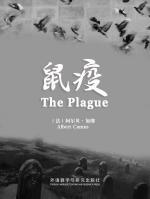Similarities Between The Plague and Medicine
杨璇怡
As we all know, our planet is now facing an unprecedented situation
in relation to the sudden outbreak of COVID-19. Every sector and
individual have been involved in the global fight against the virus. For
the sake of security, we were required to follow the home quarantine
order. And during that time, I read The Plague written by the renowned
writer Albert Camus. Admittedly, the book touched me a lot. On one hand,
the description of the plague reminds me of the status quo of COVID-19.
Up till now, the novel coronavirus has spread to 28 countries all over
the world, wiping out thousands of lives. The heartbreaking tragedy is
just like the plague described in the book. On the other hand, the
profound theme of The Plague, to some extent, is quite similar to
another great novel written by Lu Xun---Medicine. I learned the
masterpiece when I was in high school and I was deeply impressed. So, I
think the similarities between them are very interesting. Initially,
both books promote a fearless spirit of self-sacrifice. During the
plague, Dr. Bernard Rieux, the protagonist of The Plague, steps forward
to save the patients regardless of his own security. Apparently, he is
brave and selfless. He is the one who dares to stand up and fight
against catastrophe. Similarly, Xia Yu , one of the revolutionary
martyrs in Medicine, resolutely undertakes the responsibility of
overthrowing the brutal feudal dynasty. In fact, he has the choice to
live, but he chooses the opposite and is cruelly killed by the feudal
government. Hence, it’s easy to come to the conclusion that both of the
works show great respect to the dauntless spirit of resistance.
Additionally, religious and superstitious beliefs are criticized in the
works as well. In The Plague, Rieux is an atheist and does not share the
idea of Father Panalu’s collective punishment. In his view, if God is
omnipotent, he no longer needs to heal people, but allows God to heal.
Meanwhile, Lu Xun is always famous for his fierce criticism of feudal
superstition and it is the same in Medicine. By focusing on the
description of eating steamed buns with human blood for treatment, Lu
Xun shows his attitude clearly. Last but not least, both of them pay
special attention to criticizing the dark times and satirizing the evil
forces. When we take the background into consideration, we find that it
was after the occupation of Paris by German fascists in 1940 that Camus
wrote the book. According to Camus, the French people under the fascist
authoritarian power lived in isolation from the outside world. And it
was just as during the European plague epidemic in the Middle Ages. As a
result, Camus planned to use fables to portray the horrible era that
swallowed millions of lives like plague bacteria. And for Medicine, the
evil forces are the ignorant and brutal feudal dynasty. During that
time, people lived in misery because of feudal order. And revolutionary
martyrs like Xia Yu, were often branded as traitors and heretics by
feudal government. To sum up, these two works have much in common in
terms of their themes. For one thing, there are certain similarities in
the backgrounds of the two works. For another, either of the authors has
his profound thoughts and compassionate minds. As a result, despite
their different social backgrounds, their works convey a similar spirit.



 京公网安备 11010802032529号
京公网安备 11010802032529号